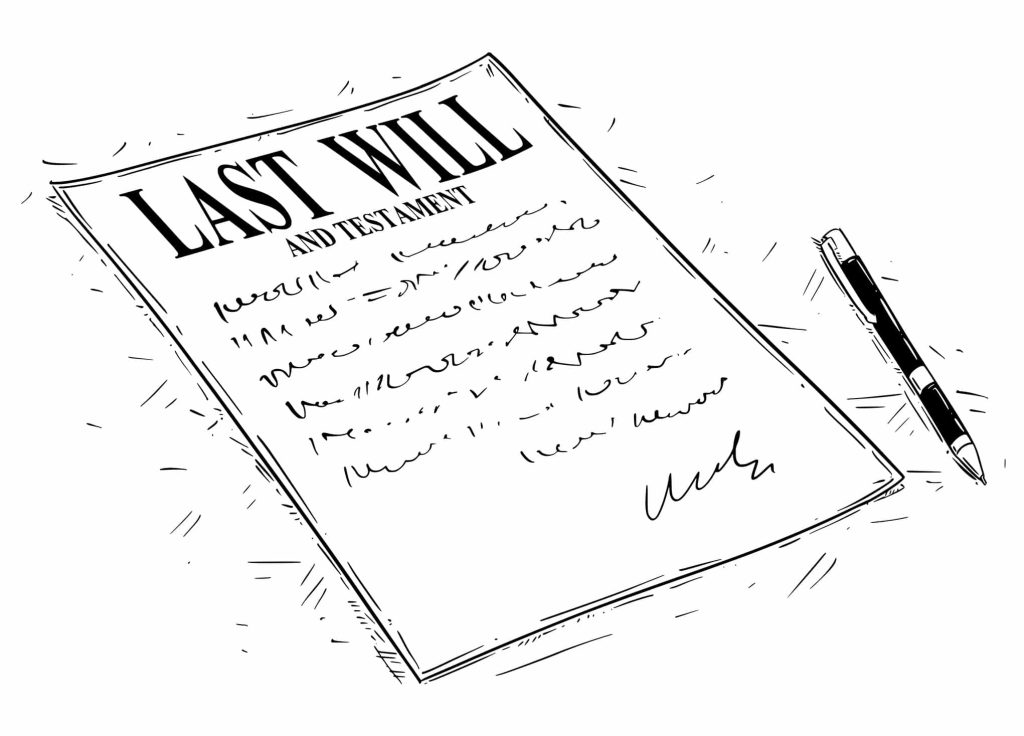Sometimes our clients misplace their original wills. They often worry whether that will cause a problem. Our usual answer: probably not — but it’s easy to fix. Let’s just redo your will, even if we don’t make any changes.
Sometimes, though, the problem comes up after a death. Everyone “knows” where the original will is. It’s right here — though this looks like a photocopy. Omigosh — it IS a photocopy! Does that mean the will can’t be probated?
Will, powers of attorney, trust — what’s the difference?
First, we want to clear up one thing: the answer is going to be different for different kinds of legal documents. Missing your original trust? Not a problem (but we might need a copy to figure out the provisions). Powers of attorney? A good copy will almost always suffice.
There’s a presumption about your will, though. If you had the original, and now it’s missing — the law assumes you destroyed it with the intent to revoke it. You can tell us otherwise, but after your death it’s hard to get your opinion on the subject.
We’ve made these distinctions before, both in written newsletters and in podcasts about original documents. Of course, our first choice is for you to hold onto all of your original documents — in one place, clearly identified, and with no marks, notes or changes on the documents themselves. But if your estate planning documents get separated, misidentified or even lost, we can probably work with the copies we kept (if we prepared your documents) or you erroneously held onto as the originals.
Here’s what we often say to clients who worry that they will misplace their original will and other documents: please keep them safe and together. But don’t worry too much. After all, if your house burns down and we can’t find the documents, we can probably overcome the presumption of revocation.
What? House burned down? Where did THAT come from?
Relax. We’re not predicting that your house will burn down. Our point is that if we can’t find the original documents after your death, there might be a perfectly good explanation that gets us past the legal presumption.
But a recent Louisiana case made the point for us — very clearly. In the case of James Ray Coon, that’s exactly what happened: his house burned down in September, 2018. Mr. Coon died six months later.
Mr. Coon had kept his important papers in a briefcase in his den. The briefcase and everything else in the house was completely destroyed in the fire. His wife found a copy of the will in his truck after his death, and the lawyer who prepared it had kept a copy. It was easy to show what the will had said. The Louisiana probate judge ruled that the evidence overcame any presumption that Mr. Coon had intended to revoke his will.
Mr. Coon’s daughter objected, and appealed. She argued that there was no affirmative evidence of her late father’s intent, and so the presumption could not be overcome. The Louisiana Court of Appeals agreed with the probate court, overruled the daughter’s objections and upheld admission of the will copy to probate. Succession of Coon, December 30, 2020.
So do you need to keep your original will at all?
Of course. We’d much rather not rely on the presumption or overcoming the presumption. We’d like your wishes and intentions to be clear, and well-documented. But we don’t think you need to worry obsessively about where your original documents are, and we don’t think you need to invest in a bank safe deposit box, or a fireproof safe in your home.
There are a number of good estate planning hygiene issues to address, but we don’t mean to overemphasize them:
- Keep your original documents together and in easily accessible place.
- Please don’t pull apart the binder we gave you, separate the documents and rearrange them. There was actually a reason we broke them up the way we did, and the more you confuse the circumstances the more likely it becomes that someone will misinterpret.
- Please, please, please don’t mark up the documents themselves. Did one of your children marry, or divorce? Did someone named in your will die? Make a note and stick it in with the originals, if you’d like — but don’t just write changes on the documents. ESPECIALLY if you’ve decided to take someone out of your will, or add someone, please don’t do it by writing on the document. You will dramatically increase the likelihood that your wishes will not be carried out.
- Do pull down your estate planning documents once a year (or so) and look at them. Do you still understand what they say? Does it still make sense? Have you changed your mind about anything? Call us, make an appointment and let’s talk about it. Is that just a chance for us to charge you for the changes? Well, it’s been our experience that the most common outcome of those calls is to figure out no change is necessary. So no, we aren’t getting wealthy off your follow-up calls years later.
Where is your original will?
OK — now that we’ve told you it’s not super-important, we’d still like you to find your original will, powers of attorney and (if you have one) trust. Go ahead. We’ll wait.
Found them? Great. Your work here is done (for a year or so, anyway). Can’t find them? Don’t panic. You might call us about executing new documents, but it’s probably not the very most important thing. It would be kinda nice if you sent us an email saying you can’t find the originals but haven’t intentionally destroyed them. You know — just in case something happens before you get new documents completed.
Be careful, and be well.



